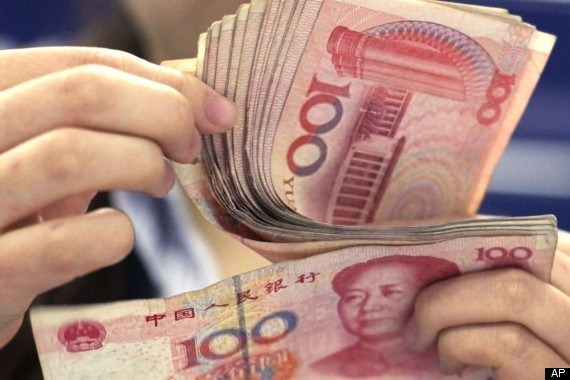
Chinese stocks are again down, a day after their worst plunge since 2007 caused market losses around the world.
The global sell-off was driven by fears that China’s slowing growth might pull down other economies.
The benchmark Shanghai Composite was down 4% at midday on Tuesday, after dropping 8.5% on what state media called “Black Monday” – overnight, stocks inEurope and the US also fell.
Other Asian markets opened lower on Tuesday, but recovered in later trade.
Live coverage of global markets
The Shanghai index opened 6.4% lower but recovered slightly to end the morning session of trade down 4.3% at 3,071.06 points.
The 3,000 point level is seen as psychologically important for investors – falling below that could trigger panic selling.
Investors globally are worried that firms and countries which rely on high demand from China – the world’s second largest economy and the second largest importer of both goods and commercial services – will be affected by its slowdown.
Carrie Gracie, China editor, BBC News: ‘Beijing thinking hard’
Some investors had hoped that the government might make a dramatic intervention to help.
But after two months of attempting and failing to shore up the markets at a cost of hundreds of billions of dollars in state funds, even Beijing now seems to be thinking hard about what stock prices are sustainable in the long term.
For a government whose legitimacy rests on economic competence, and which had hoped that a rising stock market would help ease the problems of a wider economic slowdown, this financial crisis still carries real political dangers.
Read more from our experts:
Andrew Walker: How the China share slump affects the rest of the world
Karishma Vaswani: China counts cost of Black Monday
Robert Peston: Will China’s slowdown make us poorer?
Duncan Weldon: China share falls – why it’s not 2008
In recent months, the Chinese government has intervened in financial markets, in an attempt to try to maintain momentum in the economy.
But the central bank’s devaluation of the currency, the yuan, two weeks ago, raised fresh concerns globally the economy could be in worse shape than previously thought.
A cheaper currency lowers the price of China’s exports, making them more attractive to global firms.
Elsewhere in Asia and Australia on Tuesday, markets beat expectations, opening lower but then returning back to positive territory by lunchtime:
- Hong Kong’s Hang Sengwas up by 1.6%
- Korea’s KOSPI gained 1.3%
- Australia’s S&P ASX/200 rose by 2.4%
Those gains came despite the losses in Europe and the US overnight:
- Wall Street’s Dow Jones fell 6%, then almost recovered its losses before closing 3.6% lower.
- London’s FTSE 100 index closed down 4.6%.
- Major markets in France and Germany down by 5.5% and 4.96% respectively.






